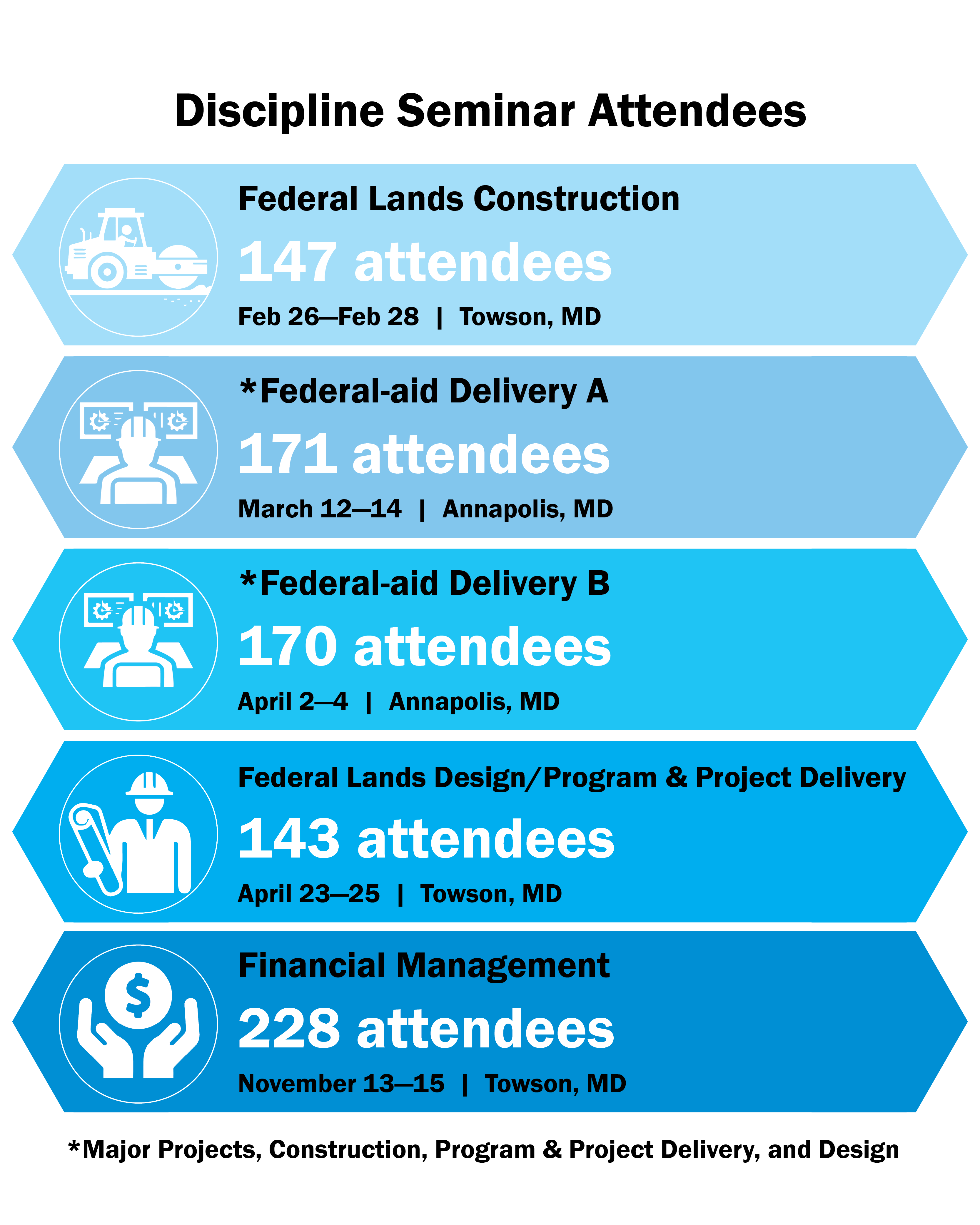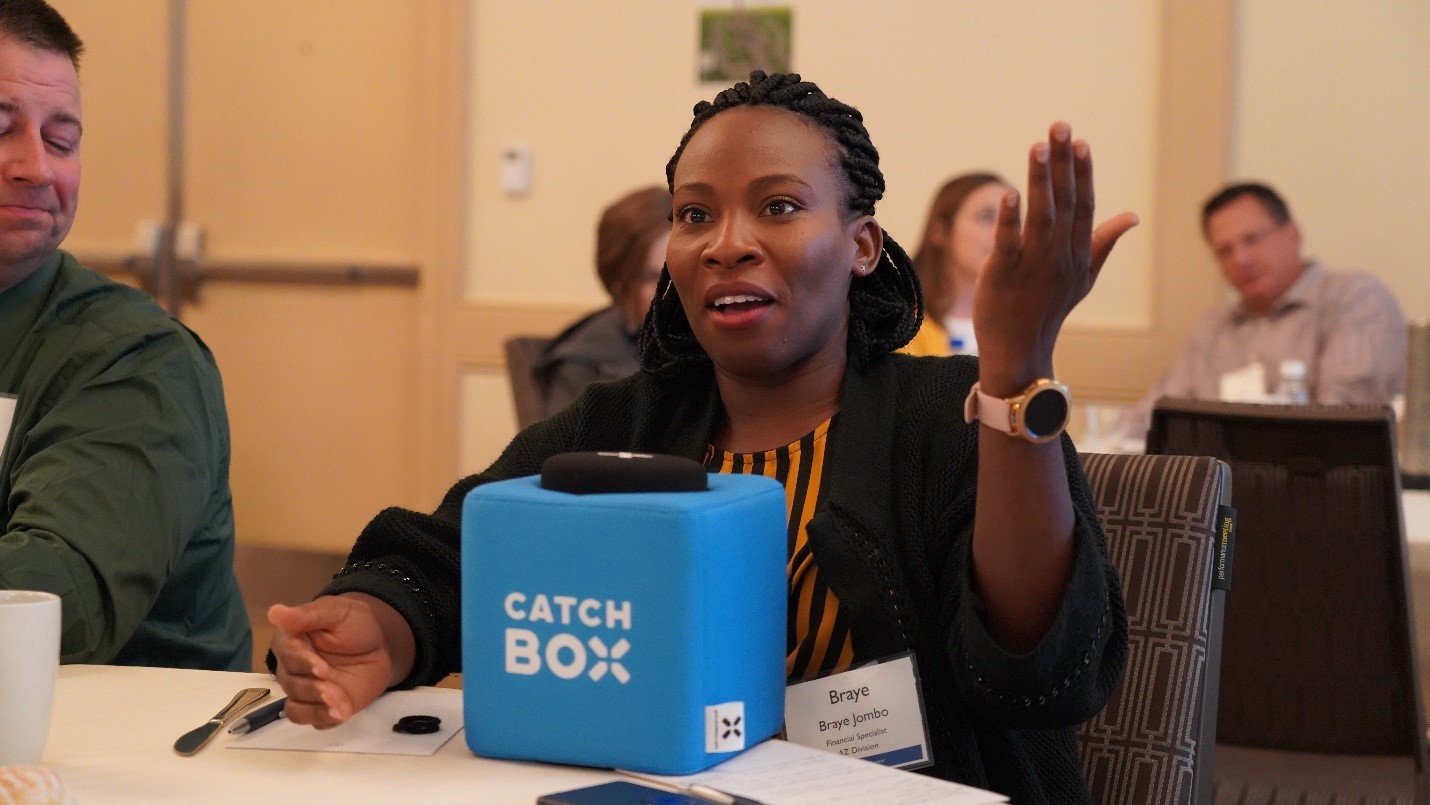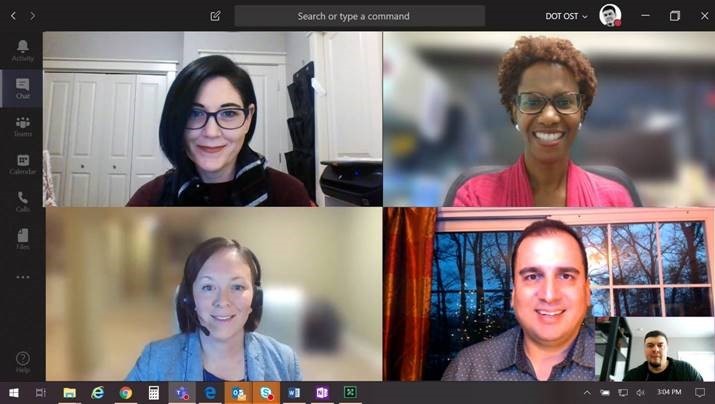Discipline Support System: Resources and Training for FHWA
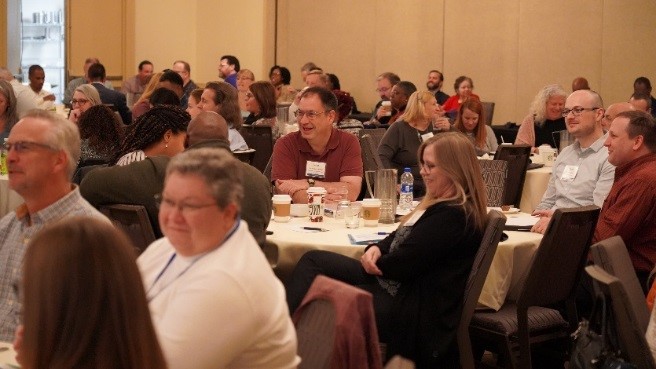
Attendees at the November Financial Management seminar. Source: FHWA
The Discipline Support System (DSS) ensures FHWA staff is skilled and equipped to carry out FHWA’s mission through targeted collaboration, training and network building activities. Knowledge Management professionals are involved in all aspects of the DSS–from creating and supporting unique activities for individual disciplines, to managing the agency’s discipline seminar program, to overseeing the discipline membership management tool. KM ensures that disciplines have access to a host of resources to learn and grow their discipline expertise.
DSS Seminars Continue to Bolster Training and Connections
The keystone of the DSS learning activities is the discipline seminar–where members gather together to train and learn from one another and other experts in their fields. Seminars are multiday events focusing on increasing technical expertise, closing knowledge gaps, encouraging leadership at all levels, and creating strong networks for sharing and collaboration. The KM unit has managed the overall seminar program since late 2017, providing more than 1,700 employees the opportunity to participate in these unique training events. The latest cycle of seminars ended in April 2019, finishing up with the four Delivery seminars for both Federal-aid and Federal Lands employees in the Construction, Design, Program and Project Delivery (PPD), and Major Projects discipline areas. More than 650 employees participated in the Delivery seminars. The new discipline seminar cycle (FY2020 – FY2022) kicked off in November with the Financial Management seminar, with nearly 230 participants from across the country.
For this new cycle, KM implemented several new program enhancements, all designed to improve the seminar experience for FHWA staff. Two new pre-seminar webinars were designed, one focused on travel and logistics, and one on instructor training. The latter was a partnership effort with NHI. KM will tailor these webinars for each discipline as they prepare for their seminars. Based on seminar feedback from the prior cycle, KM made changes to the corporate session content to better reflect the needs of the attendees.
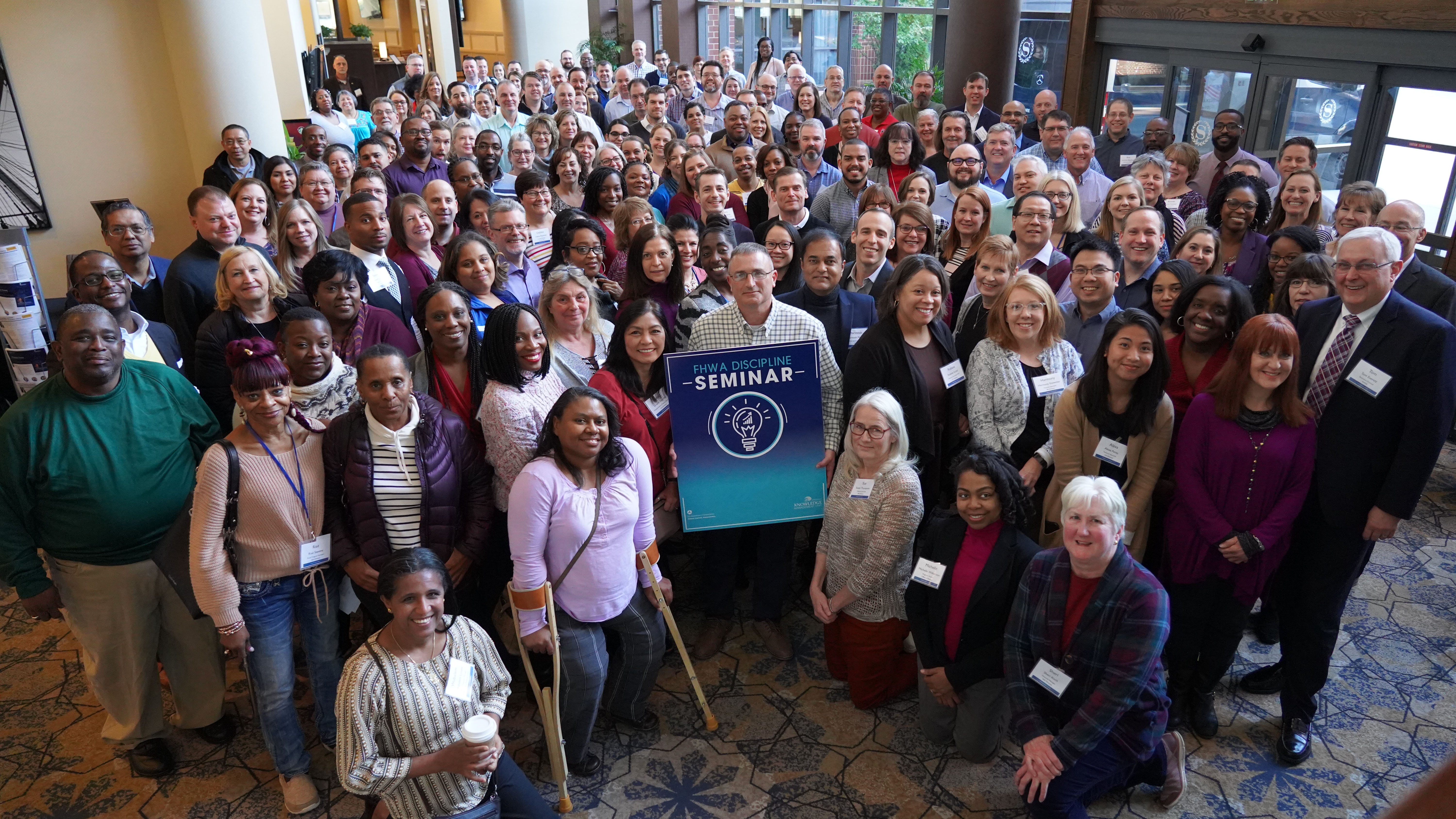
The November 2019 Finance Discipline Seminar was attended by 228 finance professionals eager to gain and share expertise face-to-face. Source: FHWA
Knowledge Capture through Storytelling
KM began developing a video series that highlights the stories behind award-winning projects and process improvements. By designing interviews that illuminate the strategies behind these activities, KM is able to capture and share best practices and broaden the reach of these successful initiatives. The first videos were shot at the Financial Management discipline seminar in November 2019.
Discipline-based Onboarding Pilot Set to Launch
While the discipline seminars are the primary technical learning activity for employees, they only occur about every three years. To ensure that employees who join the agency outside of a traditional onboarding program don’t have to wait to become immersed in their discipline, KM created Navigator – a discipline-based onboarding program for mid-career hires. Navigator is designed to quickly connect new employees with their disciplines, acclimate them to FHWA culture, and create a supportive cohort among participants.
The pilot, scheduled to launch in March 2020, will be infrastructure focused with participants from the Structures, Pavements, and Program and Project Delivery (P&PD) disciplines. The pilot agenda includes mini technical sessions, hot topics, condensed Federal Aid 101 and Highway Program Funding courses, HR training sessions, and discipline shadowing activities.
The Discipline Council Inspires Collaboration
The Discipline Council serves as the steering committee for the Discipline Support System (DSS). KM facilitates the Council through a permanent co-chair seat. Through regular web conferences, the Council encourages collaboration across disciplines, sharing of best practices, and implementation of process improvements.
In 2019 the Discipline Council co-chairs formulated a new DSS Action Plan to guide the Council through FY2022. Building on the peer assessment conducted in 2018, the plan serves as a guiding strategy to strengthen collaboration, coordination, and technical development across and within the 22 FHWA disciplines. The plan includes key priorities such as discipline member on-boarding, succession planning, learning and development, communication, networking, and more action items geared toward improving discipline capabilities and standardizing practices. Collectively, the Discipline Council co-chairs assign leads, timelines, and anticipated outcomes for each key activity in the plan, and work through the disciplines to promote and advance the DSS Action Plan goals. With open lines of communication and knowledge sharing at the forefront, the Discipline Council will help focus the disciplines’ lens towards the future, identify the priorities, and ensure the DSS continues to add value to the Agency moving forward.
